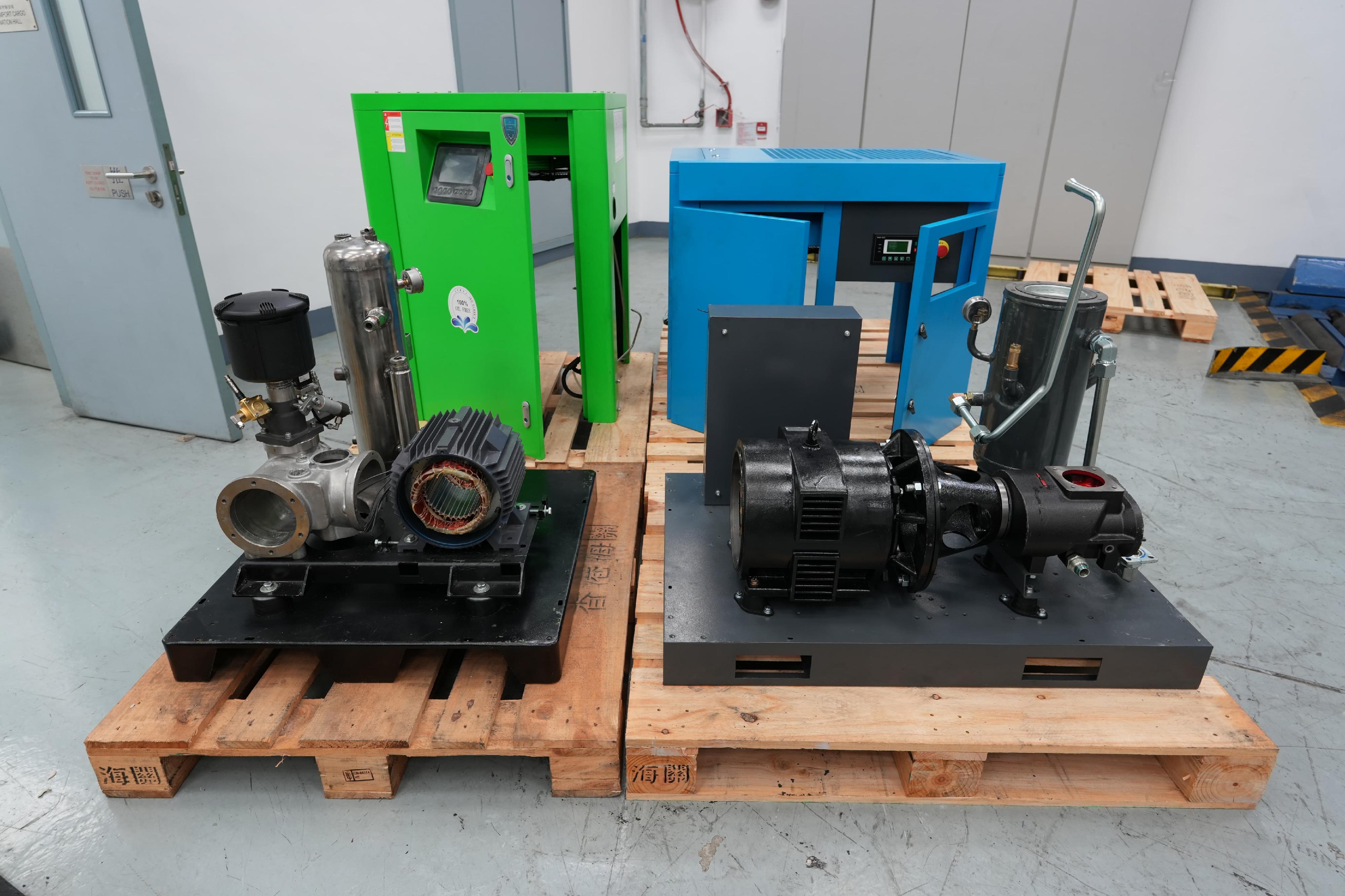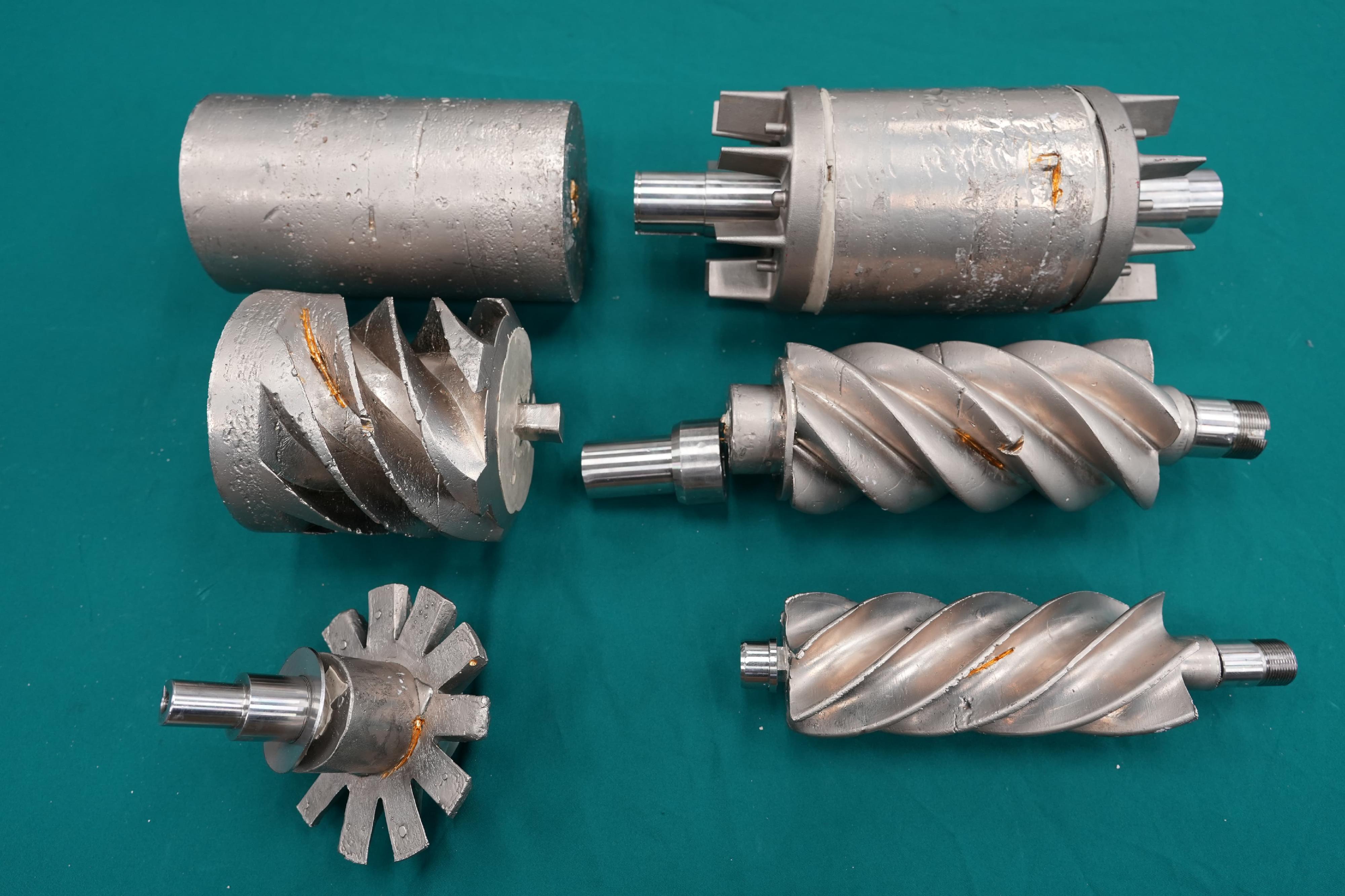Hong Kong Customs detects suspected gold-smuggling case by air worth about $84 million (with photos)
Hong Kong Customs on March 27 detected a suspected case of large-scale gold smuggling involving air freight, and seized about 146 kilograms of suspected gold with an estimated market value of about $84 million, at Hong Kong International Airport (HKIA). This is the largest gold-smuggling case detected by Hong Kong Customs on record in terms of the seizure value.
Based on risk assessment, Customs on that day examined an outbound air cargo consignment, declared as carrying two air compressors departing for Japan, at the Customs Cargo Examination Compound at HKIA. Upon inspection, Customs officers found the batch of suspected smuggled gold, which was moulded and camouflaged as air compressor parts, concealed in the integral parts of the two air compressors.
After a follow-up investigation, Customs officers on April 3 arrested a 31-year-old man suspected to be connected with the case in Hung Hom. An investigation is ongoing. The arrested man has been released on bail pending further investigation.
Customs will continue to take stringent enforcement actions against all kinds of smuggling activities through risk assessment and intelligence analysis.
Smuggling is a serious offence. Under the Import and Export Ordinance, any person found guilty of importing or exporting unmanifested cargo is liable to a maximum fine of $2 million and imprisonment for seven years.
​
Members of the public may report any suspected smuggling activities to Customs' 24-hour hotline 2545 6182 or its dedicated crime-reporting email account (crimereport@customs.gov.hk) or online form (eform.cefs.gov.hk/form/ced002/).

